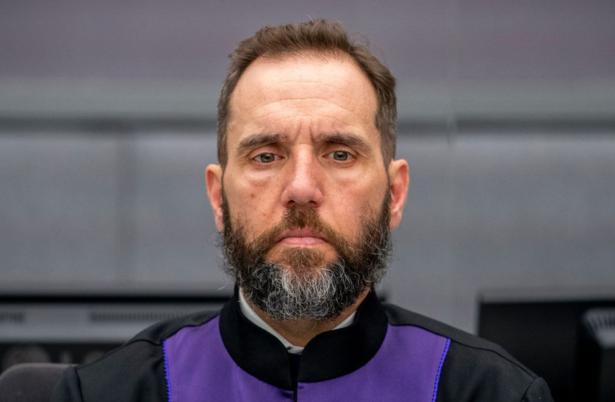[Read the Special Counsel's argument for a Jan. 2 trial date here. -- moderator.]
When special counsel Jack Smith asked U.S. District Judge Aileen Cannon for a December trial date in Florida, I didn’t expect it her to grant it. But he has a better shot at the early winter request he just re-upped in the Washington case.
Here’s why.
In Florida, Donald Trump’s classified documents trial was never realistically going to start this year. Not only because of Cannon’s historical deference to Trump, but also, and more important, because of the classified information in the case that requires additional litigation that necessarily takes more time. All in all, Cannon set a reasonable enough date when she chose May — though we’ll see whether that date and that reasonableness hold (especially with the strange order she issued this week).
At any rate, it may be for the best, in the Justice Department’s view, that Cannon kicked the classified documents case into the spring. That left the calendar open for Smith to ask U.S. District Judge Tanya Chutkan in Washington for a Jan. 2 start date in Trump’s election-related case. (It’s basically the same request the government made in Florida, because in both cases the prosecution requested that jury selection start Dec. 11.)
Of course, Trump will continue to argue that his running for president makes it impossible and unfair for him to stand trial as the primary season gets underway. In the government’s motion to Chutkan, however, prosecutors seemingly tried to kneecap that notion, taking Trump’s political status — and his alleged abuse of it — head-on:
Most importantly, a January 2 trial date would vindicate the public’s strong interest in a speedy trial—an interest guaranteed by the Constitution and federal law in all cases, but of particular significance here, where the defendant, a former president, is charged with conspiring to overturn the legitimate results of the 2020 presidential election, obstruct the certification of the election results, and discount citizens’ legitimate votes.
“Trial in this case is clearly a matter of public importance, which merits in favor of a prompt resolution,” prosecutors wrote, emphasizing that speedy trials are also for the public, not just for defendants.
And though, as prosecutors admit, there’s a “large amount of discovery” evidence, classified information doesn’t dominate the Washington case as it does with the Florida case. Though, notably, the government’s motion concedes some unspecified minimal amount of classified information at issue in the 2020 election case. While prosecutors downplayed its potential to prolong the case, we’ll see whether that becomes a bigger scheduling issue than they want it to be. Either way, expect that to surface as another avenue of attack for the defense, whose trial date brief is due Aug. 17.
And Trump’s current criminal trial schedule could also help the government’s request for a trial in early winter. His New York state hush money case is set for March, followed by a May trial in his classified documents case. Assuming Chutkan doesn’t push the election case beyond the documents case, which would be surprising, there’s only so much further into 2024 she could push the election case — which prosecutors say should take four to six weeks — before rubbing up against the New York case. (Though Manhattan District Attorney Alvin Bragg has implied he’d be amenable to adjusting his trial schedule.)
Trump also has a busy civil docket, including a January trial scheduled in writer E. Jean Carroll’s other defamation lawsuit against him. He opted not to attend the first trial, where in May he was found liable for sexual abuse and defamation.
Though the former president wouldn’t have to attend Carroll’s second civil trial, either, the special counsel’s latest filing might motivate him to do so — or to at least tell Chutkan he wants to keep the option open.
Jordan Rubin is the Deadline: Legal Blog writer. He was a former prosecutor for the Manhattan district attorney’s office.


Spread the word